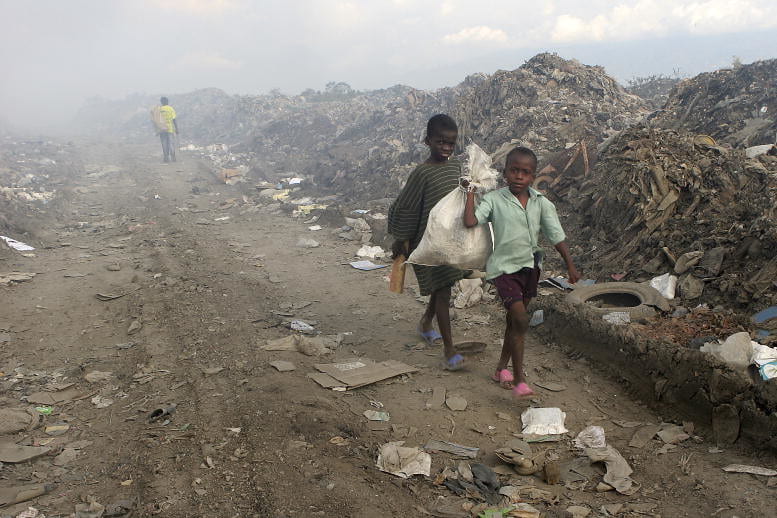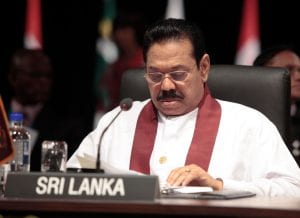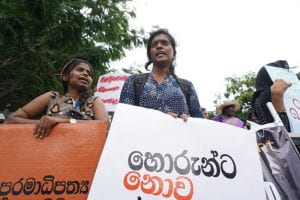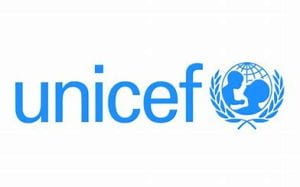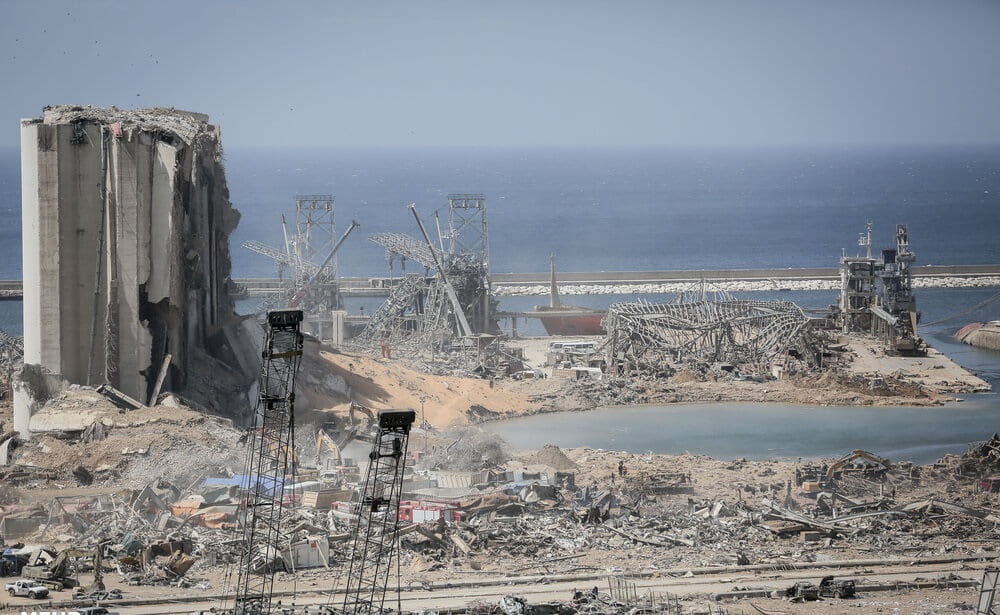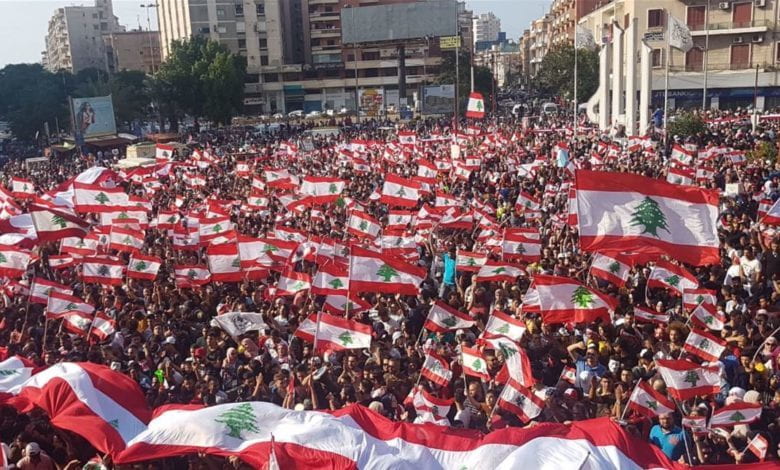Peace in Haiti is akin to a momentary breath of fresh air. Gripped by the terror of political and humanitarian crises since its founding as the world’s first Black republic, Haiti is constantly reeling from one cause of instability to the next.
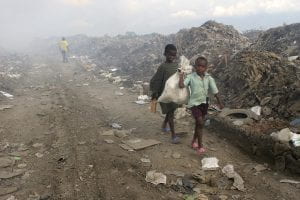
Today’s maelstrom of political inaction, violence, and human rights disasters in Haiti is rooted in a story that reaches back to its colonial past. After liberating itself as a French colony, Haiti was forced to pay reparations for the descendants of their French slave masters and lost “slave” property. Haiti took loans from French and American banks, in turn, providing more economic growth for French Banks. France essentially controlled the main bank of Haiti so much that the country became one of France’s largest financial conglomerates. When Haiti was unable to pay back American loans with interest, then President Woodrow Wilson ordered an invasion of Haiti that lasted 19 years. On top of economic repression, Haiti continuously experiences natural disasters that it is not equipped to recover from. Located in the Caribbean, Haiti experiences earthquakes and hurricanes at alarming frequencies each reintroduces economic, political, and health crises that compound existing tensions.
Coupled with military invasions from the United States and other developed countries for the sake of democratic civility, Haiti’s fate has been taken away from Haitians and toyed with by other powers. Haitian officials were also notoriously corrupt and either capitalized off their role as figureheads for invading powers or stealing from an already poor populace.
How did Haiti arrive here?
On July 21st, 2021, former Haitian President Jovenel Moise was assassinated following a presidential term riddled with election fraud and economic disasters, including increases in gas prices that left the Haitian public seething. In recent decades, Political corruption and mishandling of national resources have depleted Haiti of economic strength, continuing to repress the middle class and poor. In August 2021, a 7.2 magnitude earthquake struck Haiti, killing hundreds of thousands of people, from which Haiti is still trying to recover.
After Moise’s death, his successor, President Ariel Henry, took charge of Haiti’s administration. Still, Haiti has fallen farther down a black hole with worsening crime rates, gang violence, inflation, healthcare crises, and fuel shortages. Backed by the Core Group, a conglomerate of countries including the United States, Canada, France, UN Representatives, and the Organization of American States, Henry has done little to alleviate Haiti’s crises.
In September 2022, Henry eliminated federal fuel subsidies to increase government funding, which caused gas prices to spike immediately. The G9 Family and Allies, a coalition of the most powerful gangs in Haiti, blocked public and government access to Varreux, Haiti’s largest fuel terminal, in retaliation to Henry’s new policy. International travel slowed and goods transportation to outer markets halted leading down a spiral of fear, financial misplacement, and dwindling basic necessities such as food, healthcare, hygiene, and safety.
Political Instability
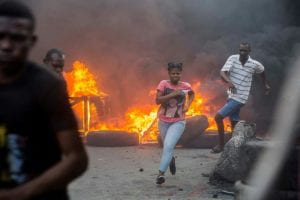
The oil terminal, Varreux, holds almost 70% of Haiti’s fuel reserves; without it, every industry has taken a hit from this disruption. Local businesses, homes, hospitals, and schools shut down with no energy to serve the people. Many hospitals have already closed, and others are temporarily running on generators. Due to rising global inflation, the cost of flour, wheat, oil, shortening, and many other resources that the country imports on a deficit rose. To make matters worse, the G9 has also blocked Haiti’s ports, slowing the shipments of emergency fuel. Because of this, most Haitians cannot pay the difference inflation has burdened them with, and the government is also not in a position to help.
Gangs, either a part of G9 or not, control the streets of Port-au-Prince, Haiti’s economic hub and a major transportation route for resources and goods going in and out of the country. Violence blazes through every street of the capital city and beyond, so much so that businesses have shuttered, and people refuse to go out into the streets for fear of dying, being kidnapped, and becoming a victim of a massacre. Ultimately, food can’t be made and people can’t venture out to get food, leaving families starving. The U.N. has stated that Haiti is facing an acute hunger catastrophe, the worst the country has seen in decades, with over 4.7 million adults and children without adequate nutritional resources. Since gangs also control transport on the roadways, water tankers and other necessary resources are not reaching the communities where people have been desperately waiting, leading to water shortages.
Another emerging problem within Haiti is the current deadly cholera outbreak, an infectious disease carried by water-borne parasites that causes uncontrollable diarrhea and dehydration to the point of death, if left untreated. The depth of this crisis is exacerbated as Haiti was declared cholera-free after successfully controlling the disease for three years. But because access to clean water, hygiene, and healthcare is limited in the current civil unrest, the Haiti Ministry of Public Health and Population has reported 1,193 confirmed cases, 13,672 suspected cases, and 288 confirmed deaths. The most vulnerable are children 1 to 4 years of age. The first case was recorded in Cite Soleil, a coastal town overrun with gangs since Moise’s assassination last year, highlighting the impact of this untimely death on the health of those in Haiti.
Sexual Violence
In wartime, rape and sexual assault are employed by invading or territorial forces as tools for fear, power, and subjugation. Haitian gangs have perpetrated widespread rape and assault against all ages of women, children, and, less commonly, men. The United Nations Integrated Office in Haiti (BINUH) released a joint report detailing the above by conducting and analyzing over 90 interviews with incident victims and witnesses over the past two years to uncover information on the pervasiveness of collective rapes and public humiliation. Although this report is not exclusive to post-G9 control, the amount of sexual violence is unimaginable now.
Women and girls are afraid to cross the “frontlines,” the name ascribed to territories controlled by gangs, for necessities, because sex is viewed as a form of currency, voluntary or not. Families may encourage this form of “transactional behavior” to gain food, water, and other resources as their power lies in weapons, political power, geographical power, and fear. Another UN report describes women used as handles for high-ranking men in gangs. Victims can be raped and assaulted for hours in front of family or friends, and mutilation and executions are common afterward.
International Response
Over the past couple of weeks, United Nations Security Council members deliberated to formalize an action plan to weaken the gangs’ control of Haiti effectively. As a result, the Security Council adopted a targeted arms embargo, freezing assets and putting individuals, or those supporting the gangs in Haiti, on travel bans. These people include the leader of G9, Jean “Barbeque” Chezier, the perpetrator of much of the violence and humanitarian crisis that Haiti is experiencing.
Security Council member states cannot permit travel or weapons sales to these individuals within Haiti’s borders. As another aspect of the adopted plan, military equipment shipments have already been dispatched to Haiti’s police force to help quell unrest. Canada is confirmed to send in armored vehicles to the Haitian authorities in addition to officials to conduct a “needs assessment” of Haiti. The United States has imposed sanctions on Haiti for drug trafficking and gang violence; though tactically sound, the move further cripples Haiti by hacking off an economic power source.
Some Haitians remain uncomfortable with foreign intervention. Past interferences from the international community have shaped Haiti’s present, overcome with lawlessness and despair. Yet, despite the history, the West and some Haitians still believe their interference may be Haiti’s best bet. There is no objection that Haiti must be helped; its recent designation as an aid state, a nation at the mercy of foreign aid, further exacerbates the conditions of Haitian citizens. The question that the world and Haitians are pondering is: how can the world help without causing a chain reaction to an even worse fate than the present?
If you would like to learn more about Haiti’s history, here are some resources that provide great insight into aid services and current events: https://www.mic.com/impact/how-to-best-help-haiti-according-to-haitians-82850703. They include Hope for Haiti, Team Rubicon, the World Health Organization, and Haiti’s Emergency Relief Fund.
